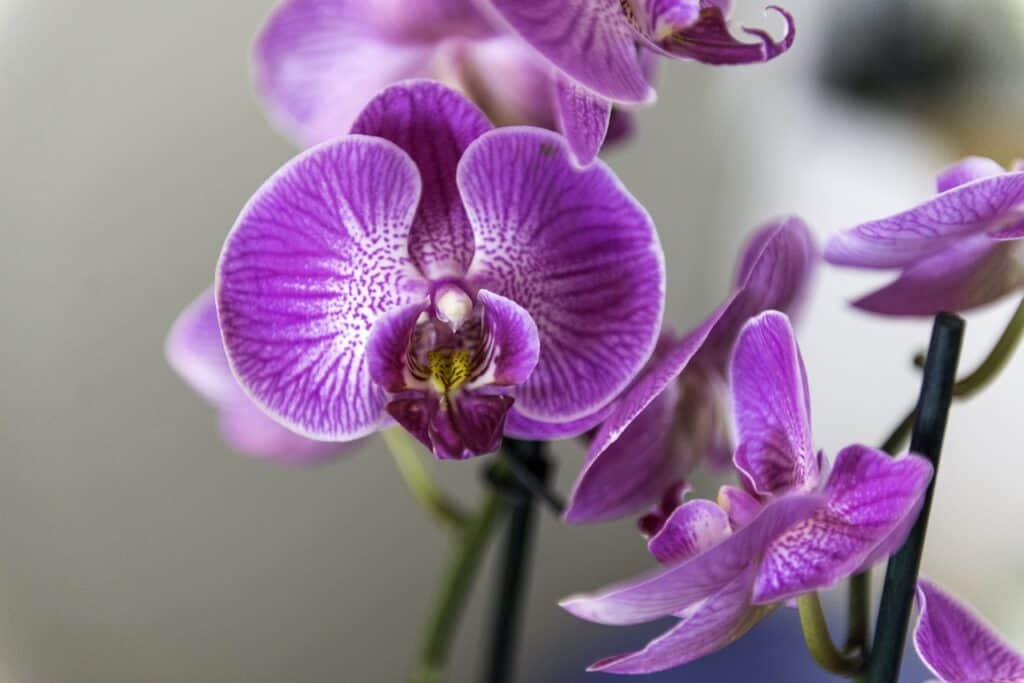Orchid mantises are truly fascinating creatures, thanks to their unique beauty and predatory nature. Also known as Hymenopus coronatus, the delicate and beautiful insect is native to Southeast Asia, including Thailand, Malaysia, and Indonesia. What makes Orchid mantises exceptional is their evolution to mimic the appearance of orchids and use it to lure in their prey.
If you happen to be an orchid mantis owner, it’s essential to understand their lifespan and how to care for them properly. In this blog post, we will walk you through the critical aspects of providing the right environment and nutrition for your mantis to thrive.
The Importance of Proper Care for Orchid Mantises
Orchid mantises require a little more attention than other species of mantids. Proper care is necessary to ensure their survival and maximize their lifespan. Providing the right environment and nutrition for your mantis will ensure that it develops into a healthy adult, which will enable it to mate and produce offspring.

The Lifespan of an Orchid Mantis: How Long Can They Live
One of the main reasons for understanding the lifespan of your pet mantis is to estimate how long you can enjoy its company. The lifespan of an orchid mantis varies depending on various factors, including the quality of care, temperature, and humidity.
Factors That Affect the Lifespan of Orchid Mantises
In addition to environmental factors, the lifespan of your orchid mantis is also influenced by its sex and life-cycle stage. Male orchid mantises typically live for about 6-8 months, while females can live up to 10 months or more.
Tips for Increasing the Lifespan of Your Orchid Mantis
You can extend the lifespan of your orchid mantis by providing proper care that meets its unique requirements. Below are some tips to help you keep your orchid mantis healthy and extend its lifespan:
1. Temperature and Humidity: Orchid mantises require high humidity levels, between 60-80%, and temperatures within the range of 70-85°F (21-29°C). Lagging behind on any of these environmental factors can drastically reduce your mantid’s lifespan.
2. Feed Quality Foods: An orchid mantis’ diet should consist primarily of insects, but not all insects are created equal in their nutritional value. It’s essential to feed your mantis high-quality prey such as fruit flies, crickets, and small moths. Not only will a higher quality diet help your orchid mantis to live longer, but it’s also more likely to grow to its full size too, making it more effective at camouflaging.
3. Enough Space: It’s essential to provide adequate space for your mantis to move around as too small of a space will stress them and lead to a shortened life. Adult orchid mantises should be kept in enclosures with at least 12 inches of minimum height.
4. Handling: Handling your mantis should be kept at an absolute minimum as orchid mantises’ delicate limbs are easily injured.
By providing adequate care and attention to these details, you can help extend your orchid mantis’s lifespan and ensure they are happy and healthy throughout its existence.
Feeding and Nutrition: What to Feed Your Orchid Mantis
The diet for an orchid mantis is primarily insects. It would help if you fed them small insects like fruit flies, wingless Drosophila melanogaster being ideal to provide the perfect nutrition they need to stay healthy.
The Nutritional Requirements of Orchid Mantises
A good diet for an orchid mantis should be high in protein, with low levels of fat and carbohydrates. The insects you offer your mantis should be properly gut-loaded with a high-quality diet to ensure that they receive proper nutrition.
Best Foods to Feed Your Orchid Mantis
While there are a variety of insects you could offer your pet mantis, not all are the best choices. Orchid mantises have their specific preferences, and keeping them happy and healthy depends on providing them with the right foods. The best foods to feed your orchid mantis include:
1. Fruit flies: This is an ideal food choice for young orchid mantises due to easy digestion. While adults can feed on fruit flies, they may need a few more to feel full.
2. Gnats: Gnats are a great source of protein and are perfect for your orchid mantis’ diet, but they move quickly and may require more skillful hunting.
3. Aphids: Aphids are nutritious, but tend to be difficult for mantises to capture as they are known for dropping off plants when threatened.
4. Small moths: Small moths like wax moths, are perfect for adult mantises that may need fewer but more filling meals.
Proper Environment: Creating the Ideal Habitat for Your Orchid Mantis.
Orchid mantises require an environment that provides the humidity levels and temperatures they need to thrive. Creating the ideal habitat includes providing the right temperature and moisture levels, along with proper housing and handling.
Temperature and Humidity Requirements
Providing proper temperature and humidity levels is essential in creating the ideal orchid mantis habitat. They require high humidity levels, ideally between 60-80%, while temperatures should range between 70-85°F (21-29°C).
Providing a Safe and Comfortable Space for Your Orchid Mantis.
Your orchid mantis needs a comfortable and safe space to thrive. The enclosure should provide enough space for the pet to stretch out and engage in its natural behaviors, such as hunting and moving around. Enclosures may come in a variety of sizes, and it is essential to get the right size for your mantis to ensure that they thrive.

Final Thoughts: The Joys of Raising an Orchid Mantis.
Raising an orchid mantis is an enriching experience that enables you to witness the fascinating ways these creatures live and develop.
The Unique Beauty and Characteristics of Orchid Mantises
Orchid mantises are uniquely beautiful creatures that captivate the hearts of many enthusiasts. Their gorgeous and delicate appearance, along with their predatory nature, make them captivating.
The Satisfaction of Watching Your Orchid Mantis Thrive and Grow
Watching your pet orchid mantis grow and thrive under your care is an incredibly fulfilling and rewarding experience. You’ll see them go through their life cycle stages and develop their characteristic skills such as hunting and hiding.
Conclusion
Orchid mantises require proper care to thrive and achieve their maximum lifespan. That includes providing a suitable environment with ideal temperature and moisture levels, a well-rounded diet and prey, and adequate space to move around.
By following the tips outlined in this blog post, you can help ensure that your orchid mantis lives to its full potential, remaining healthy and happy for as long as possible.
Understanding the requirements of your orchid mantis is also important to keep it healthy and happy. As hard as it may seem, keeping your pet mantis comfortable and well-fed is not as difficult as it may seem. Proper care for your orchid mantis will not only allow it to reach its maximum lifespan, but it will also give you the satisfaction of knowing that you’ve made a conscious effort to care for a beautiful and unique creature.

